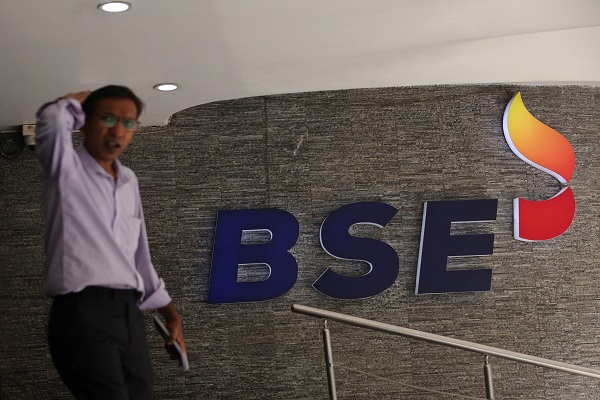Sat Kartar Shopping coming with IPO to raise Rs 33.80 crore

Sat Kartar Shopping
- Sat Kartar Shopping is coming out with an initial public offering (IPO) of 41,72,800 equity shares in a price band Rs 77-81 per equity share.
- The issue will open on January 10, 2025 and will close on January 14, 2025.
- The shares will be listed on SME Platform of NSE.
- The face value of the share is Rs 10 and is priced 7.70 times of its face value on the lower side and 8.10 times on the higher side.
- Book running lead manager to the issue is Narnolia Financial Services.
- Compliance Officer for the issue is Himanshu Malik.
Profile of the company
Sat Kartar Shopping is an Ayurveda healthcare company committed to providing natural wellness solutions relating to specific therapeutic areas and general lifestyle products, committed to promote a healthier lifestyle. It integrates traditional Ayurvedic knowledge with modern research to empower individuals to adopt healthier lifestyles. With a strong market presence and a diverse product portfolio, it focuses on innovation and responsive product development. Initially, the company offered both Ayurveda and spiritual product lines. However, it has strategically refined its focus to specialize exclusively in Ayurveda, establishing ourselves as a dedicated player in this sector and emphasizing quality and effectiveness in its holistic wellness offerings.
There is a growing interest among consumers in natural and organic products, driven by a desire for effective alternatives to conventional medicine. Although the market remains diverse, with varying levels of product quality and standardization, it sees a significant opportunity to strengthen its position in the Ayurveda healthcare sector by addressing the increasing demand for high-quality natural wellness products. In order to meet this demand, and with a mission to encourage and support a healthier lifestyle for customers, it caters directly to individual consumers, providing them with holistic, natural remedies and lifestyle products rooted in traditional Ayurveda practices. The company operates in D2C (Direct-to-Consumer) segment, selling Ayurveda products directly to consumer through its own D2C website and third-party e-commerce websites, TV marketing and Google and Meta Applications.
The company operates under a strategic contract manufacturing model, which allows it to concentrate on high-value activities like product innovation, branding, marketing, and distribution. By partnering with trusted third-party manufacturers, it leverages their expertise and resources while maintaining control over its formulations and ensuring quality through comprehensive agreements. This approach allows it to connect directly with its customers and enhance their experience through streamlined delivery and effective feedback integration. Its product development is guided by a deep understanding of market demand, traditional Ayurveda principles, and modern wellness insights. This commitment enables it to create a product range that is both authentic and innovative, addressing the evolving needs of its customers. The company’s primary focus is on directly serving end consumers rather than engaging any intermediaries/ middlemen or other businesses.
Proceed is being used for:
- Meeting the expenses of unidentified acquisition (In India or Abroad)
- Meeting the expenses marketing and advertisement
- Meeting the capital expenditure
- Meeting the expenditure on investment in technology
- Meeting the general corporate purposes
Industry Overview
The India health and wellness market size is expected to exhibit a growth rate (CAGR) of 5% during 2024-2032. The rising consumer awareness towards consuming a nutritional diet of fruits and vegetables, adopting an active lifestyle, and performing physical activities like running, walking, yoga, cycling, etc., is stimulating the market. India is becoming a favored destination for health tourism, attracting international patients seeking affordable and high-quality medical treatments, wellness retreats, and alternative therapies. India's medical tourism market is expected to reach $14.31 Billion by 2029. According to India Tourism Statistics, around 634,561 foreign tourists came for medical treatment in India in 2023, which was nearly 6.87% of the total international tourists who visited the nation. Besides this, in July 2021, the Ministry of Tourism in India established the National Medical and Wellness Tourism Board to promote medical and wellness tourism in the country.
Meanwhile, India Ayurvedic Products Market has valued at $7.65 billion in 2023 and is anticipated to project robust growth in the forecast period with a CAGR of 18.4% through 2029. The India Ayurvedic Products Market is a thriving and dynamic sector deeply rooted in the country's ancient tradition of Ayurveda, which emphasizes natural remedies, holistic well-being, and the balance of mind, body, and spirit. Ayurveda, often referred to as the 'science of life,' has been practiced for over 5,000 years in India and continues to play a significant role in the country's healthcare and wellness landscape. Ayurveda, one of the world's oldest holistic healing systems, has its origins in ancient India. Its teachings and practices have been passed down through generations, and Ayurveda remains deeply ingrained in Indian culture and healthcare. In recent years, there has been a resurgence of interest in Ayurveda, both within India and internationally, driven by a growing preference for natural and traditional wellness solutions.
The online sales channel has undeniably secured a significant share in the India Ayurvedic Products Market, reshaping the way consumers access and purchase traditional herbal remedies and wellness products. Ayurveda, India's ancient holistic healing system, has witnessed a resurgence in popularity, both domestically and internationally, in recent years. This revival has been fueled by a growing preference for natural and holistic healthcare solutions. The online sales channel plays a pivotal role in facilitating the accessibility, convenience, and diversity of Ayurvedic products, leading to its substantial share in the market. One of the most significant advantages of the online sales channel in the Ayurvedic Products Market is its ability to reach consumers across India, including those in remote areas where access to physical stores may be limited. Online platforms break down geographical barriers, allowing individuals to explore and purchase Ayurvedic products with ease. This accessibility is particularly crucial in a vast and diverse country like India.
Pros and strengths
Emerging brand with PAN India presence: The company operates and ensures availability of its products all over India. In the financial year 2023-2024, majority of its revenue has been sourced from certain cities including 18.44% from Tamil Nadu, 10.38% from Uttar Pradesh, 8.34% from Karnataka, 7.13% is from Andhra Pradesh. Further, it delivers in metropolitan states as well as tier 1 cities, tier 2 and tier 3 cities by engaging delivery partners.
Asset light business model: The company operates on an asset-light model, where the amount of capital invested in business assets is comparatively less than as compared conventional business models. This has helped it in keeping requisite capital handy and allows it to focus on and invest in the areas where it specializes, as well as other important functions such as marketing and customer satisfaction. Furthermore, it has saved it from the threat of market obsolescence and reduced its liquidity risk.
In house research and development: The company has its in-house team of research and development consisting of BAMS (Bachelor of Ayurvedic Medicine and Surgery) Doctors who develop the required formula for its production by the Contract Manufacturers. This helps it to manage and monitor the process which is being carried out in development of formulations. It cuts down the reliance on third parties and saves it from the risk of allegations of unethical practices to get the desired formulations. Thus, preventing it from getting its image tarnished.
Risks and concerns
Promoter of the company are first generation entrepreneurs: The company’s present Promoter, Manprit Singh Chadha is first generation entrepreneur. His experience in managing and being instrumental in the growth of the company is limited to the extent of their knowledge and experience and it cannot assure that this will not affect its business growth. Investors and stakeholders may be more cautious when the entrepreneurs belong to first generation. This could affect the ability to secure funding or partnerships that are critical for growth. Established entrepreneurs often have extensive networks within their industries, which can be invaluable for partnerships, collaborations, and accessing resources. First-generation entrepreneurs may have limited connections, making it more challenging to tap into these opportunities.
Top 10 Suppliers contribute a significant portion in providing finished goods: The company procures finished goods (ayurveda products) from various suppliers. Around 99% of its finished goods are purchased from its top 10 suppliers during the three preceding financial years. To ensure consistent supply of finished goods, the company has contract manufacturing agreements with 6 of its suppliers, to manufacture, improve, modify the product in accordance with its instructions. Any dispute with any of the suppliers may damage its relationship with existing and potential suppliers, and in any such event its operations will be adversely affected which in turn will also affect its profitability and reputation in the market.
Major revenue comes from top 5 states: The company’s business operations span various regions across India. Despite this diversified presence, it has a significance dependency on its top 5 states, which contributes 55.50%, 52.24%, 48.84%, and 61.52% of its total revenue from operations for the financial years ending on December 15, 2024, March 31, 2024, March 31, 2023, and March 31, 2022, respectively. Relying heavily on these geographic location exposes it to regional economic fluctuations, regulatory changes, and local market dynamics. Adverse conditions such as economic downturns, political instability, or natural disasters specific to that region could significantly impact its revenue stream and also any decline in the economic prosperity or changes in regulations within that particular region could negatively affect its financial performance.
Outlook
Sat Kartar Shopping is an Ayurveda healthcare company focused on delivering natural wellness solutions for therapeutic and lifestyle products, promoting a healthier lifestyle. The company offers holistic, natural remedies and lifestyle products based on traditional Ayurveda practices, serving individual consumers directly. It sells products through its own website, third-party e-commerce platforms, television marketing, and Google and Meta applications. The company has in house research and development and well-structured logistics process. On the concern side, majority of the company’s state wise revenues from operations for the last 3 years is majorly derived from Top 5 States. Any adverse developments affecting its operations in this state could have an adverse impact on its revenue and results of operations. Moreover, its Top 10 suppliers contribute a significant portion in providing finished goods which are sold by the company to end consumers during the current and previous financial years. Any dispute with one or more of them may adversely affect its business operations.
The company is coming out with a maiden IPO of 41,72,800 equity shares of Rs 10 each. The issue has been offered in a price band of Rs 77-81 per equity share. The aggregate size of the offer is around Rs 32.13 crore to Rs 33.80 crore based on lower and upper price band respectively. On performance front, the net revenue from operations for the financial year 2023-2024 stood at Rs 12,79,093.27 thousand whereas for the financial year 2022-23, it stood at 8,29,695.53 thousand representing an increase of 54.16%. The increase in revenue from operations is primarily due to heightened consumer demand for natural and holistic health products (Ayurvedic), driven by rising health consciousness and favorable cultural trends. Profit after tax for the financial year 2023-2024 stood at Rs 63,054.96 thousand whereas for the financial year 2022-23, it stood at Rs 25,061.37 thousand representing an increase of 151.60%. Going forward, the company is diversifying its product portfolio and including products related to various health issues such as slimming, hair care, gut health, PCOD (Poly Cystic Ovary Disease), and mental wellness. This expansion is driven by market research and consumer demand, ensuring its offerings remain relevant and appealing to a broader audience. This strategy aims to cater to a larger demographic by balancing premium quality with broader accessibility. By doing so, it extends its reach to diversified health issues while maintaining a high-value proposition.























